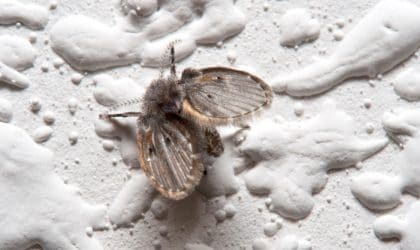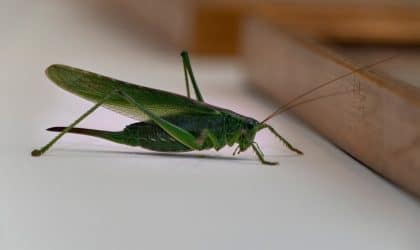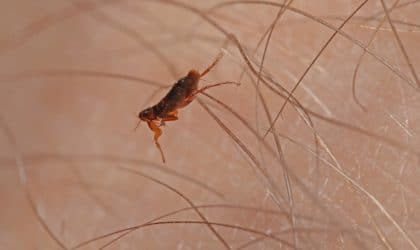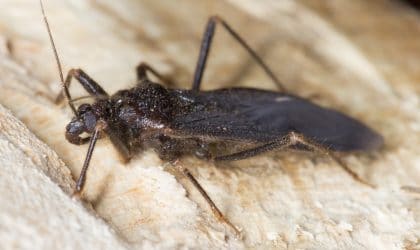Do Cockroaches Smell? What Do They Smell Like?
Do you have an oily smell in your home, but aren't sure what it is? If you've found a new smell, and also found some poop laying around your house, it's possible you have a cockroach infestation. Find out what to do next.
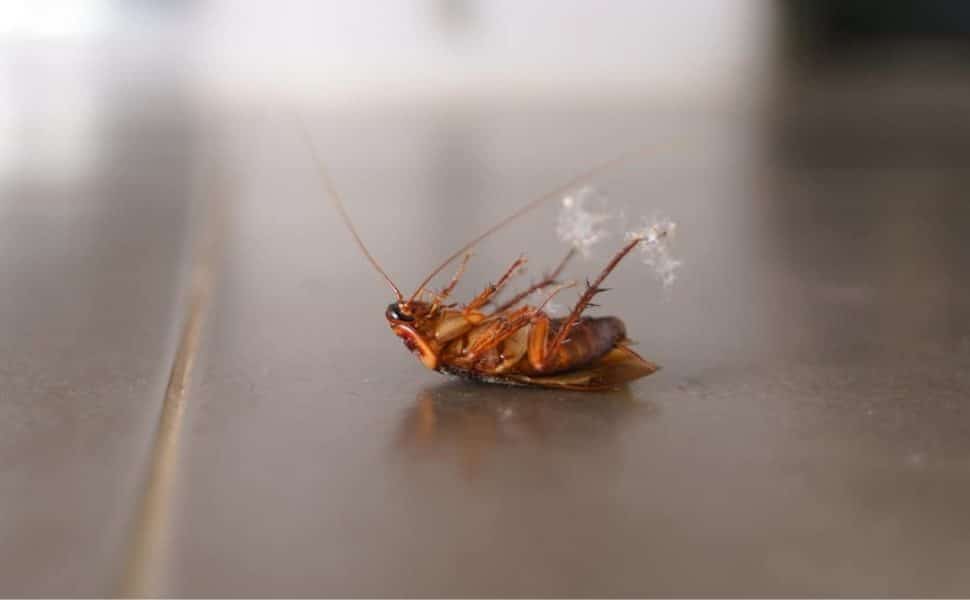
There are over 4,500 species of cockroach in the world, and they’re found on every continent except Antarctica. They even look very similar to many other pests! Before you book a one-way trip to the South Pole, relax.
Only 30 species of cockroach are considered pests. And only four of those invade our homes often enough to be categorized as nuisances because of the danger they cause. Cockroaches smell, so if you’ve found a new scent in your house, it’s possible you may have a cockroach infestation.
But if you hate cockroaches and live in the United States, brace yourself for some bad news. All four nuisance species can be found on American soil. American, Australian, Oriental, and German cockroaches are all common inhabitants of American sewers.
In addition to being scuttling vectors of disease, California State University entomologist Richard Kaae says cockroaches are the insects humans fear most. The phobia of cockroaches, also known as katsaridaphobia, affects tens of millions of people worldwide. The good news is that roaches don’t bite like other insects, so it’s really just identifying them, and getting rid of them for good. Let’s jump in!
Do Cockroaches Smell?
We’re supporters of the “live and let live” philosophy as long as cockroaches remain out of sight and out of mind. But it’s another matter when these nasty pests scurry into our homes. So how do you know if you’re sharing your home with a nest of creepy-crawly cockroaches?
In addition to hearing skittering noises within your walls and potentially seeing cockroach feces, which resemble grains of black pepper, around your home, one of the easiest detection methods is odor.
Yes, cockroaches smell. Unfortunately, they won’t smell the same way to each person. But they do smell, and smell is usually one of the first signs that you have a roach infestation.
What Do Cockroaches Smell Like?

The best way to describe the smell of living cockroaches is stale oil. If your home begins to smell like your favorite greasy diner in a bad way, it’s time to start searching for the nesting site.
Due to a high concentration of linoleic and oleic acids, cockroaches produce a powerful, oily stench that takes on a musty note. Cockroaches reproduce rapidly. So the smell will increase over time as more eggs hatch and more members join the growing roach community.
As roaches die, they give off a slightly acidic smell caused by the breakdown of fatty acids decomposing. The scent has been described as a combination of a clogged toilet and soy sauce. You’ll also detect this smell after cockroaches molt, the process of shedding their skins.
Because humans can identify over one trillion scents. We all perceive certain scents differently, so the stench of roaches may not smell the same to everyone. But, we can all tell when our homes don’t smell like they normally do.
Why Do Cockroaches Smell?
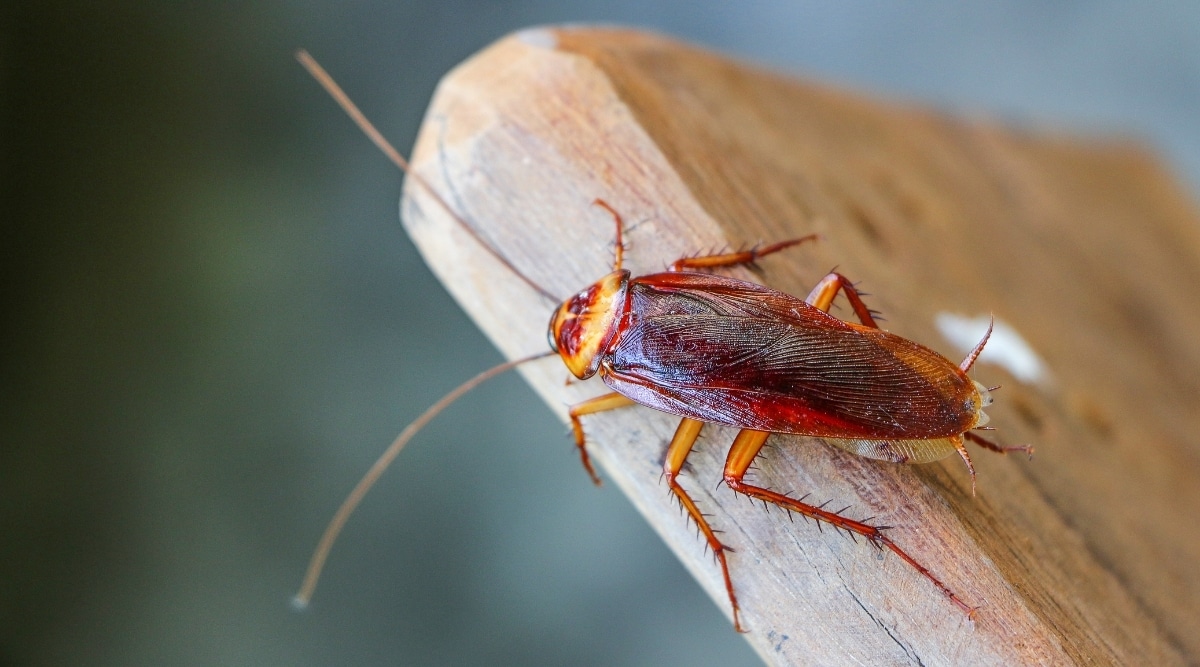
Like many other species of the insect kingdom, cockroaches communicate using scents. Using a blend of scents known as cuticular hydrocarbons, which doubles as a waterproof coating, cockroaches send signals to each other with this pheromone when they find a suitable nesting site. It’s like text messaging for cockroaches, only much stinkier.
While the presence of a single cockroach emitting cuticular hydrocarbons is undetectable to humans, the scent becomes pungent once they’ve congregated to build a nest.
The Oriental cockroach is said to be the stinkiest offender. But there are exceptions to all rules, and the German cockroach is one of them. Even a single German cockroach is capable of offending the human nose. German cockroaches are also a common trigger for allergies and asthma This makes them one of the worst pests found in our homes.
Another stinky source of roach odor comes from their feces, which attracts mold. Cockroaches are drawn to dark, damp spaces. So, if you notice a sudden increase in musty, mildewy smells in your home, it’s likely an indication that you have a roach nest somewhere that needs to be dealt with.
In addition to their smelly communication system and pungent feces, cockroaches also emit an oily smell as they die. The scent is produced by the breakdown of fatty acids, such as linoleic and oleic acids, during the decomposition process.
As with their cuticular hydrocarbons, this scent serves as a means of communication. The scent of death is a warning system for roach compatriots, repelling other cockroaches from the site of their demise. Unfortunately, as more cockroaches die off, the vile stench increases. And even more, it can linger long after you’ve dealt with the carcasses.
How to Rid Your Home of Cockroaches
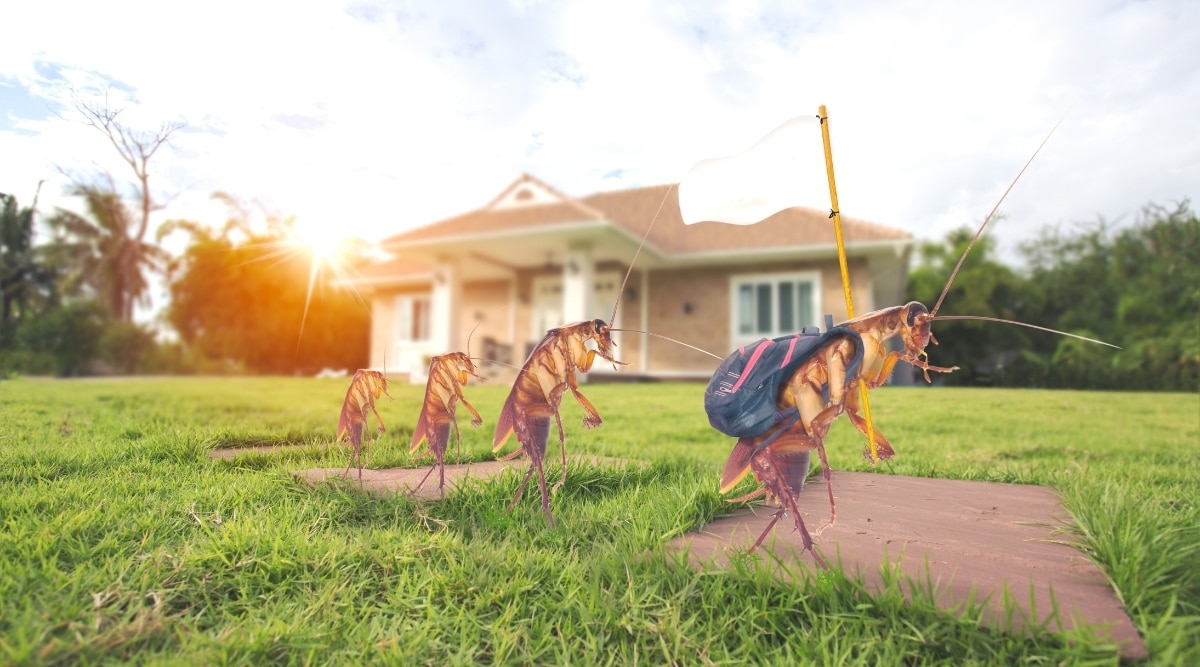
Like all other invasive pests, cockroaches usually invite themselves to share our homes because they’re looking for food and water. Roaches are particularly fond of dark, warm, humid climates. They typically enter our homes through nooks and crannies as well as pipes connected to the sewer system.
Cockroaches have also been known to follow us home by hiding out in the folds of clothing, handbags, briefcases, and duffle bags. This is especially true if we tend to carry snacks with us.
A few common cockroach attractants include:
- Crumbs on counters and floors
- Dirty laundry, especially if the clothes are sweat-stained
- Dirty dishes and utensils
- Pet food
- Standing water
- Improperly sealed food
When it comes to cockroaches, the better question is usually, “how don’t they get into our homes?” Roaches are tenacious in their search of sustenance, and they’ll find their way into even the cleanest of homes if they see a potential food source.
Despite the fact that cockroaches can and do take up residence in clean homes, they’re most attracted to unhygienic conditions. While your house might look clean to the naked eye, even a few microscopic crumbs on the floor are an all-you-can-eat buffet to hungry cockroaches. Here are a few ways to get rid of cockroaches for good:
Clean Your House Thoroughly
The easiest way to deter an infestation is to keep your house as clean as possible. We recommend you wash your dirty clothes as quickly as possible. Keep your laundry in a sealed laundry hamper if you don’t have time to wash up right away. Cleaning up spills immediately after they happen, storing food in air-tight containers, and mopping regularly are also effective ways to ward off pests.
Use Sticky Traps
If you’ve seen a roach or two skittering around, or even suspect you have roaches in your home, one of the best ways to locate a nest is to use glue traps. Place them in common nesting areas around your home. This can be near large appliances, drains, and sinks. This will give you a better idea of where the nesting site is located.
Use Cockroach Bait
Once you’ve found the nest, it’s time to get rid of the infestation once and for all. Cockroach bait uses insecticides that kill roaches through direct ingestion or secondary poisoning. Roaches will eat anything, including each other. So, once the first wave of roaches dies, the other members of the colony will eat its remains and succumb to the poison.
Use Boric Acid
One of the most effective ways to lure and kill cockroaches is mixing a combination of water, sugar, and boric acid. You’ll want to take precautions before using this method. It’s highly toxic to breathe, so boric acid should only be used while wearing a mask. We don’t recommend this in homes with pets or small children. Remember, boric acid is completely different from Borax, a common flea and other insect treatment.
Deter Future Invasions
Common bug sprays kill on contact and deter roaches. We don’t recommend using them until you’ve dealt with an infestation. However, they’re excellent at driving off would-be invaders. As always, take precautions when dealing with potentially toxic chemicals.
Call a Professional
If you suffer from katsaridaphobia, or the invasion has gotten out of hand, it’s time to call in professionals. While it’s a more expensive solution to do-it-yourself techniques, hiring a professional will give you something money can’t buy: peace of mind.
We’ve all heard the phrase, “an ounce of prevention is worth a pound of cure,” and that’s especially true when dealing with invasive pests. Once you’ve dealt with an infestation, making your home as inhospitable as possible should be a top priority. A professional will also make sure you actually have roaches, and not some other bug that looks like a roach.
Preventing Future Infestations
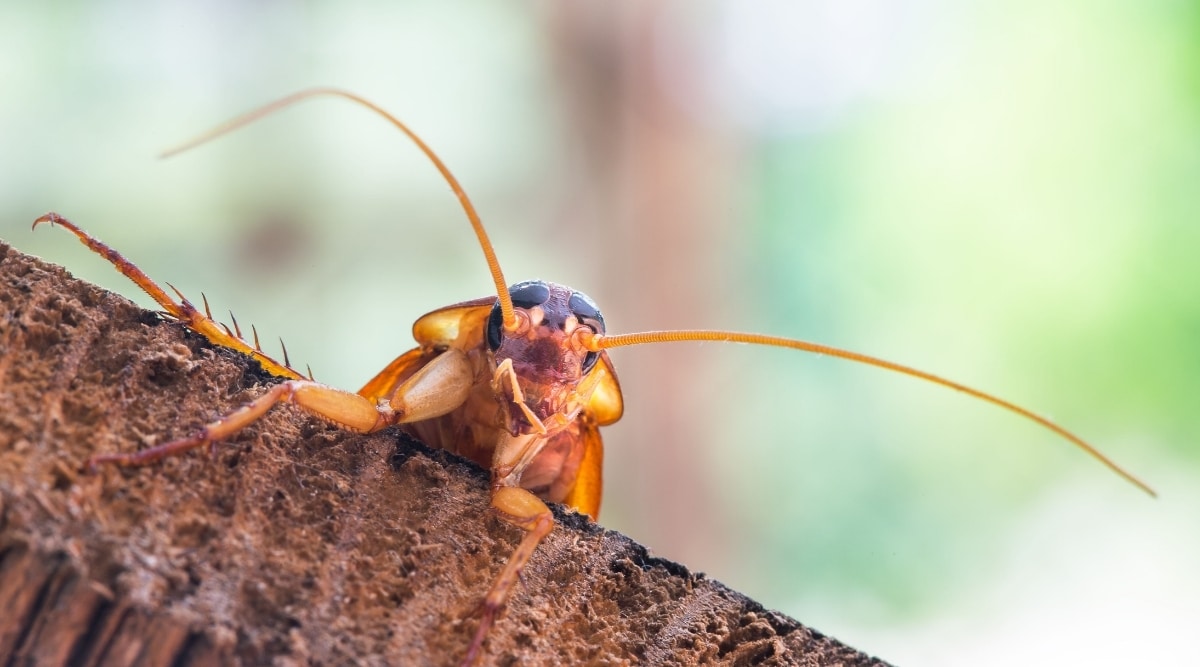
In addition to keeping your home clean and using roach-deterring chemicals, there are a few things you can do to keep your home from becoming a roach motel.
- Don’t store newspapers or cardboard boxes in your home
- Keep your home as free of clutter as possible
- Clean up around pet dishes
- Keep your plumbing in good condition
- Seal off any cracks and crevices in your home
Roaches love to use newspaper and cardboard as breeding grounds. We recommend storing any paper and cardboard items in sealed containers if you need to keep them at all. Cockroaches also love to nest in cluttered areas. Keeping the clutter to a minimum robs them of possible hiding spots. Even pet food is attractive to roaches; cleaning up after your pet will help keep the roaches at bay.
Because roaches are attracted to moisture, ensuring you deal with any plumbing issues as soon as they arise is paramount in deterring roaches. Regularly inspecting pipes, faucets, and even your refrigerator is a great way to prevent a minor leak from becoming a major problem.
Sealing any cracks around your home blocks off various entry points, so roaches will be more inclined to nest elsewhere. Common entry points you should seal include crawl spaces, basements, and attics. Make sure the doors and windows are properly caulked, and if you have a chimney or vent, use mesh to keep roaches from getting in.
Getting Rid of the Smell
Once you’ve eradicated the cockroach nest, you may discover that your house still smells. Fatty acids create a pungent, lingering stench, but making your home smell fresh and clean again is possible. Here’s a few solutions:
Vacuum Your Home: Using your vacuum hose attachment, clean out anywhere cockroach skins, feces, or carcasses could be hiding. Make sure to move appliances away from the walls so you can vacuum behind them. Don’t forget the insides of drawers and cabinets.
Use a Degreaser: Just like dish soap cuts through oily residue on pots and pans, it’s also effective in dissolving the fatty acids left behind by cockroaches. Diluting a dish soap and using it to mop your floors and clean your counters is one of the best ways to get rid of the stale, greasy smell roaches leave behind.
Dealing with roaches can be a time-consuming process, but reclaiming your home from these pests is a battle well worth fighting. Keeping your home clean and regularly using disinfectants and degreasers can ward off future pests.
Share this post
Save time and money on pest control
Subscribe to expert DIY pest control tips, pest control product reviews and information.

